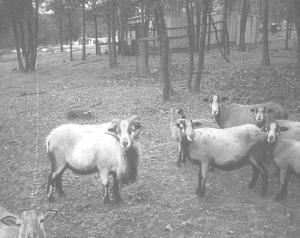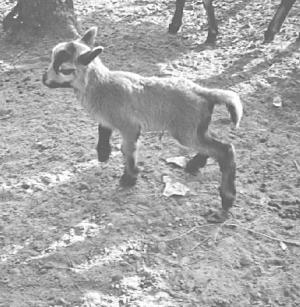1997 - Volume #21, Issue #2, Page #20
[ Sample Stories From This Issue | List of All Stories In This Issue | Print this story
| Read this issue]
Blackbelly Barbados Sheep
 |
 |
"One ram and four ewes were first brought into Texas from Barbados in 1904," says Charlie Beam, co-founder of the recently formed Blackbelly Barbados Sheep Association USA. "There are thousands of them still in this country but few - if any - are purebred Blackbellies anymore. We're hoping to identify any that are, as well as some of the crosses."
Meantime, Beam, who has 27 Blackbellies, says there are plenty of reasons to raise these small sheep named for their native country and the black hair on their bellies.
One reason is that they're fantastic "mowing machines" capable of cleaning weeds and brush out of pastures in no time. When grazing large tracts of land, the sheep prefer weeds and underbrush to grass, Beam says.
Blackbellies are a small breed, with adult producing ewes generally weighing only about 90 lbs. and rams 125 lbs.
Because they're a meat sheep with hair - not wool - they never need shearing or tail-docking, he says.
They're also exceptionally prolific, he adds. Ewes breed early enough to lamb at 13 months and are capable of lambing every 7 1/2 to 8 months. They'll produce twins, triplets, even quadruplets, after their second lambing.
Blackbellies produce a mild meat that many people prefer over other lamb or mutton.
Three-year-old rams with good curl on their horns sell for around $150, while 1-year-old ewes sell for $55 to $65, Beam says.
Contact: FARM SHOW Followup, Blackbelly Barbados Sheep Association USA, Spurlock & Beam Farm, 18412 E. Indian Hill Rd., Newalla, Okla. 74857 (ph 405 360-5187).

Click here to download page story appeared in.

Click here to read entire issue
To read the rest of this story, download this issue below or click here to register with your account number.




